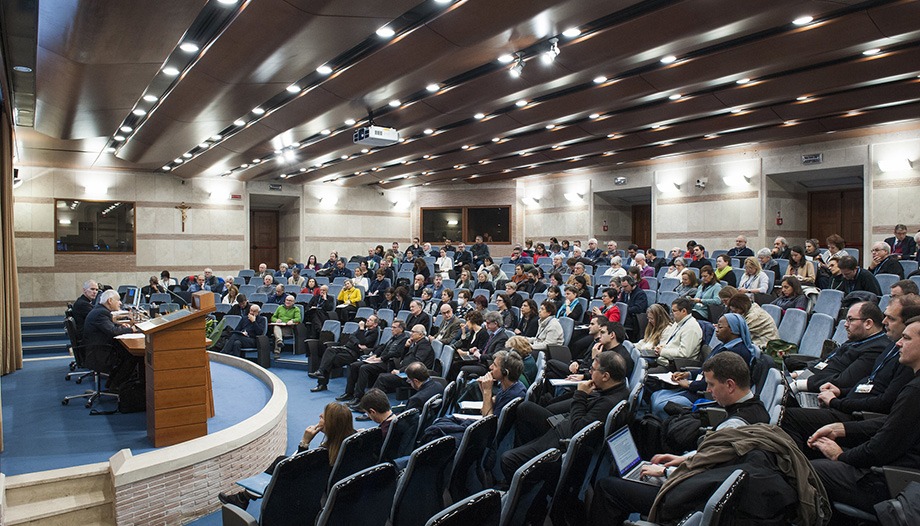To help the human and supernatural growth of those who belong to ecclesial movements and new communities without neglecting, on the other hand, to deepen the challenges and problems posed today by this sensitive area of the spiritual accompaniment.
All this was discussed during the Study Week organized during these days at the Pontifical University of the Holy Cross on the initiative of the Faculties of Canon Law and Theology.
Some 250 people from thirty different countries attended this week either in person or online. Among them were teachers, catechists, community leaders, missionaries, formators, spiritual assistants and doctors who were able to deepen their understanding of various aspects of accompaniment and also participate in a series of workshops with case studies and sharing of experiences and testimonies.
Among the religious realities represented there were members of some dioceses, but also members of Congregations and Movements such as the Movement of the Apostles, the Movement of the Apostles and the Movement of the Apostles. Focolarethe Legionaries of Christ, the Neocatechumenal Way, the Legionaries of Christ, the Neocatechumenal Way, the Prelature of Opus Dei or the Community of L'Emmanuel, the New Horizons Association, to name but a few.
The week was inaugurated by Cardinal Kevin FarrellPrefect of the Dicastery for the Laity, Family and Life, who also sponsored the entire initiative.
Safeguarding freedom
"The primary object of spiritual accompaniment must be 'real' progress in the Christian life," the Irish bishop began, "so it is necessary to favor 'not identification with the charism, but identification with Jesus Christ!' In fact, it is precisely the charism that within a movement is placed "at the service of the imitation and following of Christ".
With regard to the choice of spiritual companions, the Cardinal said that "impositions or limitations on the part of those in charge of movements or communities" must be avoided, precisely because personal freedom must always be safeguarded.
Learning to pray
Msgr. Massimo Camisasca, founder of the Priestly Fraternity of the Missionaries of St. Charles Borromeo, emphasized accompaniment as a path of formation. "The first step of a true accompaniment is to listen. Every member of the faithful who receives spiritual accompaniment benefits from this attitude and, in this way, spiritual direction becomes "a school of prayer, understood as a dialogue with God". However, for this approach to bear fruit, it is necessary to graft the person "into a praying community".
Towards the desire for truth
Also speaking during the Week was the Pro-Prefect of the Dicastery for Evangelization, Archbishop and theologian Rino Fisichella, who focused his reflection on how to form evangelizers who are "men and women of God". The answer lies in acquiring a new awareness that makes Christians capable of "entering into the heart of cultures, of knowing them, understanding them and guiding them towards that desire for truth that belongs to every man and woman in search of the meaning of their lives".
On the importance of integrating psychology and faith spoke the Bishop of San Benedetto del Tronto (in the Marche region of Italy), who showed how this discipline can help people "achieve greater concrete freedom and greater readiness to follow Jesus," although it can never give all of human reality the ultimate horizon of existence.
Accompanying the decision making process
Amedeo Cencini, of the Pontifical Salesian University, contemplated the figure of the companion as an "older brother in faith and discipleship," who offers the "younger brother" that help of a spiritual nature that allows him to "discover God's action in his life and freely decide to respond to it."
Here, too, training is a must: "the spiritual companion must be able to accompany one's own decision-making process. In fact, promote it as the believer's normal way of being'.
The function of illuminating
"The one who accompanies has the function of enlightening, orienting, observing in order to understand where the Spirit is guiding that soul. But he cannot impose: his function is one of service, not of dominion", were the words with which the Rector of the Pontifical University of the Holy Cross, Luis Navarro, summarized the main points that emerged from the Week of Studies, knowing that there are still aspects to be improved "in this service to souls willed by God for his Church".








